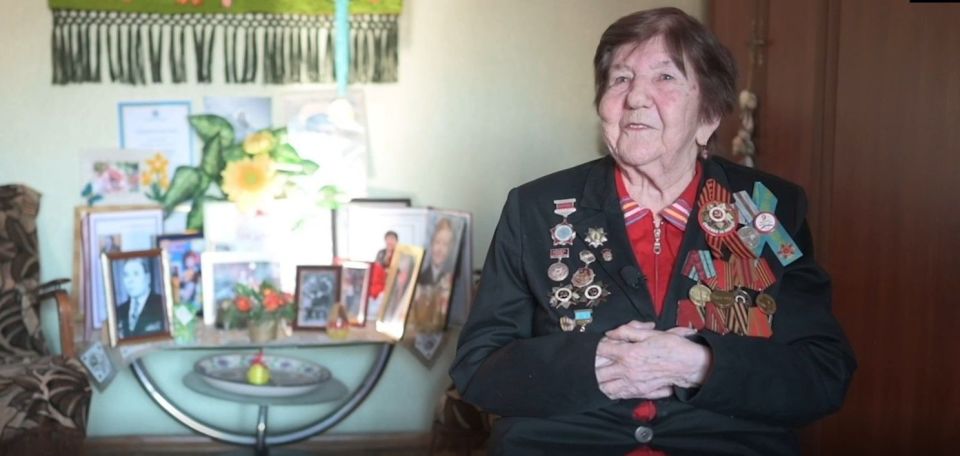Serafima Grigorievna Ponomareva, an MGIMO University student, headed to the front, sang patriotic songs with the troops at the recently-captured Reichstag on Victory Day, and became an interpreter at the Nuremberg Trials at the age of 18. The events of those months remain fresh in her memory despite her being 94 years old. We filmed and recorded Serafima Grigorievna Ponomareva's story. Her version of events is presented without changes, uncut – as she remembered them. Today’s episode is the second in a multimedia series about the Nuremberg Trials interpreter. Read and watch the first episode to learn how Serafima Ponomareva ended up at the trials.
The material was prepared by Sputnik Kazakhstan International News Agency in cooperation with the editors of the “Nuremberg: Casus Pacis” project.
‘It was impossible to listen calmly’
Seraphima knew about the crimes of the Nazis even before working at the Nuremberg Trials: she had to collect material at eight concentration camps. She visited Mauthausen, Majdanek, Sobibor, and Buchenwald. After visiting all the concentration camps and rewriting the testimonies of eyewitnesses, the translators handed the collected information to specialists who were preparing evidence for the prosecution.
On 19 November 1945, Marshal Zhukov announced to Seraphima and her colleagues that tomorrow they were leaving for a responsible job. Already in the morning they were brought to Nuremberg. From that day until 16 February 1946, Serafima Ponomareva was a direct participant and daily witness to what was happening at the trial. The most demanding type of interpretation, simultaneous translation, was used in Nuremberg for the first time. Seraphima and her colleagues had to learn on the spot.
“In November 1945 Zhukov gathered us for a meeting and announced that we were going on business trips. What could we say? Well, let`s go. We visited Dresden, when a picture collection was rescued from a Dresden Gallery; we saw all those paintings... We were in Halle ... We were in all of the cities of Germany. Our work was like this.
At eight in the morning we gathered at the headquarters and got into big German cars with a colonel, some generals, about six people in total. They drove for a long time, and suddenly said: "Nuremberg, let's go out". We saw a beautiful white marble building ... Why Nuremberg? Because Berlin was completely destroyed, there were no buildings ... And once, even before Nazi rule in Germany, courts were held there. The building remained intact, and the process occurred there.
We didn't even know where they were taking us, we were subordinates! I remember a huge hall, as wide as the distance from my house to the next one. We were brought to the courtroom and we sat behind a screen; we were given headphones. The process began at 10 o'clock in the morning. We saw how criminals were delivered in armored vehicles. They were standing with guards behind their backs. Each criminal was guarded by two of our officers. There were also lawyers, and our prosecutor Rudenko [ed. - Roman Andreevich Rudenko, Chief Prosecutor for the USSR at the Nuremberg Trials].
Sometimes 37 people were interrogated per day. One day, I remember, we were very tired; the number of people interrogated was forty. We were so exhausted, we had time only to drink a little water and that was that, we could not stand up, sometimes we didn't even have lunch. But we didn't even ask for anything. The translators were not changed. That's why we were always so tired; there were no translators, where could they get them from? There were no well-prepared translators. Would they take me, a seventeen-year-old girl, if there were qualified translators? Over time, military translators began to be brought from the Soviet Union.
Interrogations lasted for 12 hours; we rested every two hours. Everyone came out sweaty. Every day we signed documents specifying that we would never tell anyone about what we had heard. Everything was classified. Every evening we signed the papers, went to have some rest, and in the morning they brought us back. This went on for two months ... I had no energy at all, it was very difficult.
The most difficult moments were when the extermination of Children at the Majdanek camp in (occupied) Poland was discussed, I remember this process. Witnesses described a huge tobacco factory in Majdanek where our children, our Soviet children, whose parents were taken to work in Germany, were making cigarettes. Ten thousand children were exterminated there in one day, because one person, an instigator, a captured Soviet officer, said: "put sand in cigars instead of tobacco". And cigarettes were filled with sand. When it was discovered, fingers of children were put between doors and needles were inserted under their nails.
Now I am talking about it calmly, but then it was impossible to listen to. And not a single child said who told them to do so. It was scary to look at, we, the translators, could not stand it. There were many moments like that, terrible moments when people were tortured.
I did not tell anyone about the process, not even my husband. I told something to my children later, but in general – I`ve never told anything to anyone. No one even knew that I had participated in the Nuremberg trials. Only my military card said: “awarded the Order of the Patriotic War of the first degree, for long-term participation in the process, Nuremberg, Germany”.
The material was prepared by
Correspondent Ayguzel Kadir,
Cameraman Abzal Kaliyev,
Sputnik Kazakhstan International News Agency;
Editors Irina Kareva and Lesya Orlova of the Nuremberg: Casus Pacis Project.
























